Indonesian Women Entrepreneurs: Champion Gender Equality in the Workplace, Marketplace and Community as WEPs Ambassadors
Date:
Author: Chiquita Carolyne
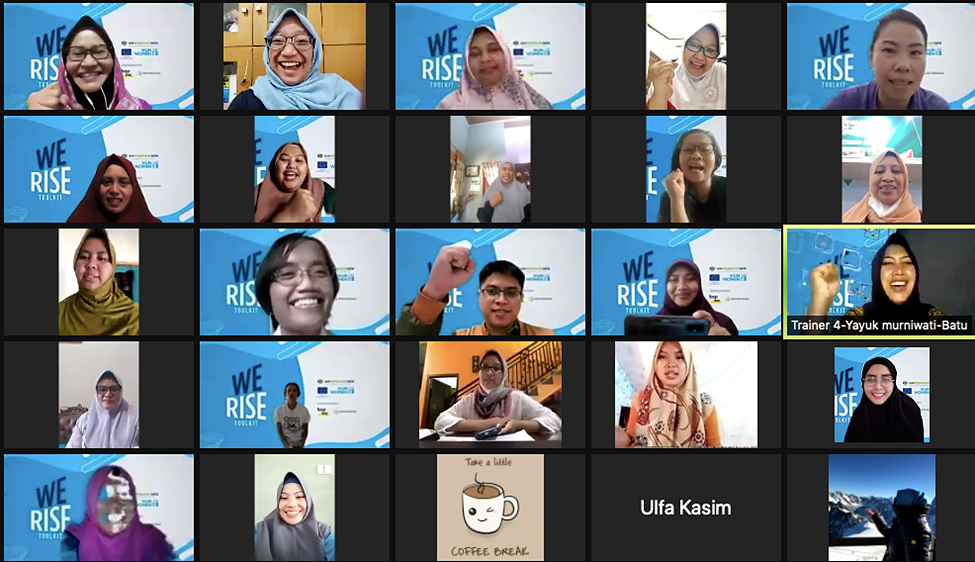
Small Medium Enterprises (SMEs) play a significant role in Indonesia– they provide employment opportunities and reduce income inequalities, which drives the country’s economy forward and promotes social inclusion, as reported by the Organisation for Economic Co-operation and Development (OECD) in 2018.
However, today they are facing difficulties in accessing capital financing to fuel their businesses due to a lack of credit history, having no bank accounts, and limited financial literacy and business experience. A 2020 World Bank Study reported SMEs unmet credit needs in developing economies totalled almost US$ 8.1 trillion, accounting for around 40 per cent of gross domestic product. Meanwhile, the increase of loan shares to SMEs are in line with the increase in financial stability thanks to the reduction of non-performing loans and a decrease in the probability of default.
Aware of these facts, UN Women through the European Union (EU)-funded WeEmpower Asia Programme, aimed for more women to lead, participate and have access to enhanced business opportunities. To that end, it launched the Women Entrepreneur (WE) Rise toolkit, together with ukmindonesia.id and BopInc. This toolkit is designed for and with women-led SMEs in the ‘missing-middle’ – those who are considered too big for microfinance institutions (MFIs) and too small or risky for traditional finance providers, such as commercial banks. The WeRise toolkit is aimed at women entrepreneurs to improve access to finance and to increase gender equality and inclusivity in their own businesses.
In December 2021, WeEmpowerAsia, along with ukmindonesia.id, conducted a series of training sessions using the updated and localized WeRise Toolkit for Indonesian SMEs. The toolkit was designed together with entrepreneurs, accelerators and finance experts from both Asia and Europe. Through interactive workshop sessions and pilot trainings, the materials strove to be as practical and relevant for the target group as possible. More than 80 SMEs in Indonesia joined the two-day training sessions in two batches, having in-depth discussions on business funding schemes, challenges in accessing it and the available opportunities.
During the training, all SMEs were encouraged to work towards gender equality in growing their businesses by joining the Women’s Empowerment Principles (WEPs) network. WEPs are a set of seven principles established by UN Women and the UN Global Compact, guiding businesses to become more gender-responsive across their value chain. A WEPs signatory has the advantage of being part of a global network of 5,700 companies organized by UN Women and the UN Global Compact. In Indonesia, currently 158 companies across sectors and sizes are signatories to WEPs.
UN Women Indonesia presents the narratives of three inspiring women entrepreneurs, participants in the WeRise Toolkit Training, about their businesses and gender equality initiatives.
1. Elsye Suryawan, Director of Kelompok Bunda Berkarya
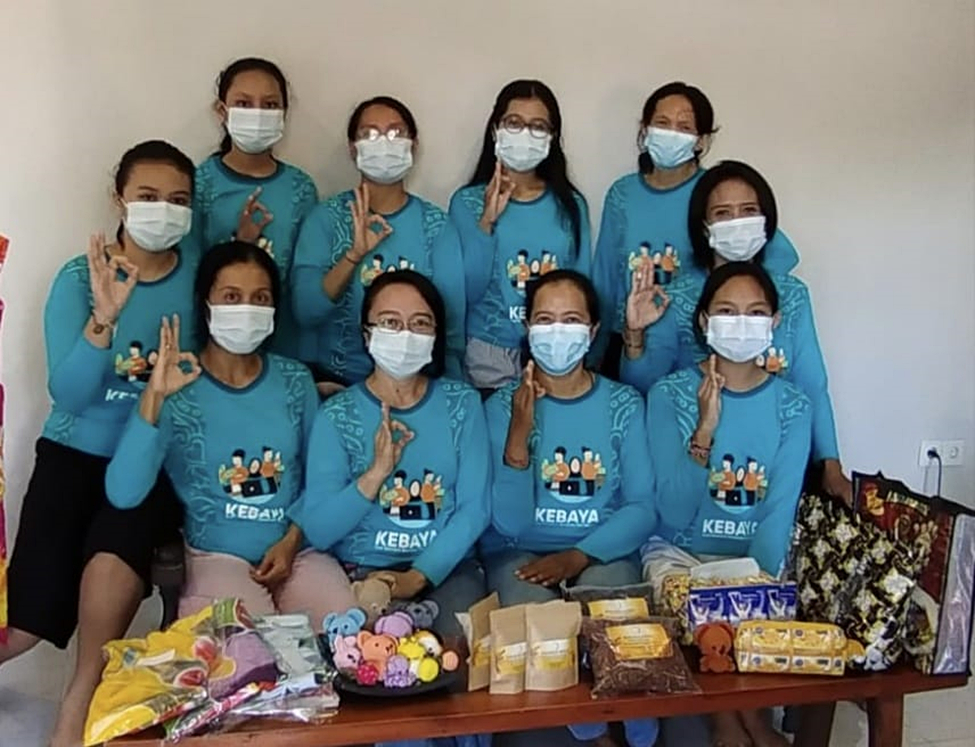
Concerned about sustainability and marginalized communities, especially women with disabilities, Elsye Suryawan established a women’s business group, Kelompok Bunda Berkarya (Working Mother Groups) and heads the non-profit organization, Yayasan Peduli Kemanusaan Bali (YPK BALI) that caters to the needs of persons with disabilities. She created the women’s business group to empower women with disabilities by helping them become economically active through making and selling handicrafts made from plastic waste thereby creating economic added value.
She has a long-held aspiration – for women and men to be equal, in the household and community, not entrenched in a deeply-rooted patriarchal culture of men as the dominant players. To that end, she has conducted many trainings for women and girls to realize their potential and abilities, both in her business and in the foundation she leads.
Elsye believes that the concept of gender equality has to be understood from an early age. To advocate for gender equality for girls and encourage their right to make their own decisions, she organizes various programmes, such as vocational training for women, Balinese dancing and drawing lessons, while also providing sex education to the beneficiaries in her foundation.
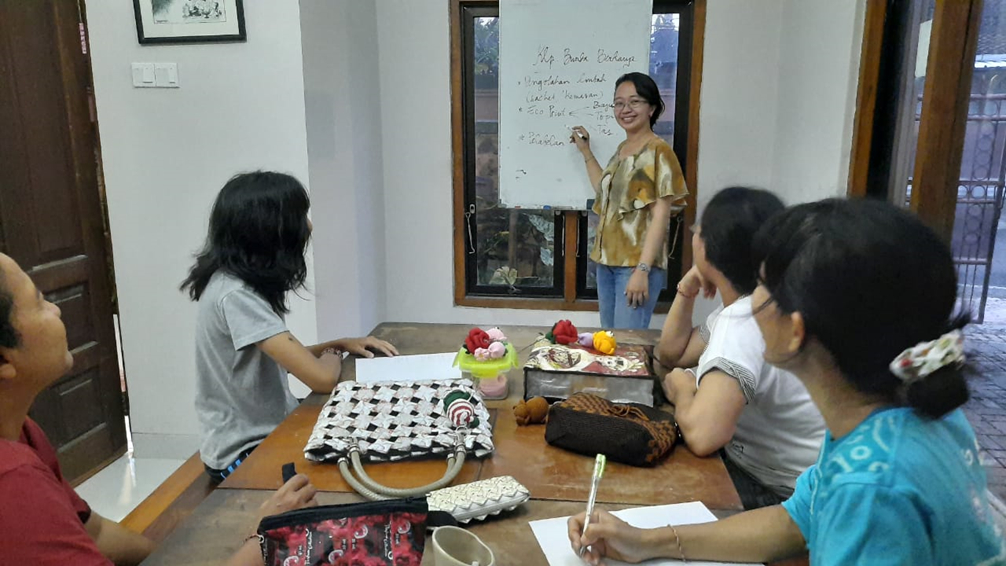
Elsye was very grateful to receive WeRise Training, which she claimed broadened her perspective on how to obtain funding for her business. She disseminated this information among members of her business group. She emphasized that often the women in her group regard their lack of capital as the reason for not owning a business, although many funding institutions do offer financing to small enterprises.
Knowledge of the WEPs also provided her with a clear framework on which to base her current and future actions. Currently, 95 per cent of her employees in her foundation are women. She has a maternal leave policy in place, and conducts sex education sessions for the foundation’s staff and the beneficiaries.
She hopes to be a further advocate for gender equality for girls. “Looking back, when I was a child, the common narrative was condescending to girls’ capabilities. I don’t want such mysoginistic attitudes to give them a mental block when they are adults – incapable of achieving something just because they are girls, despite their interest and potential. I want to end those narratives!”
She believes that girls have limitess potential growing up. These value are also embodied in her family, and she taught her children about a woman’s right to make her own decisions and to choose what action to take, and how to respond to bullying. Moreover, she advocates gender equality to the people around her – the women business group and her staff – hoping that the notion of gender equity will be passed on to their personal friends, family, household and communities.
2. Putu Furina Dewi, Owner of Moja Coffee
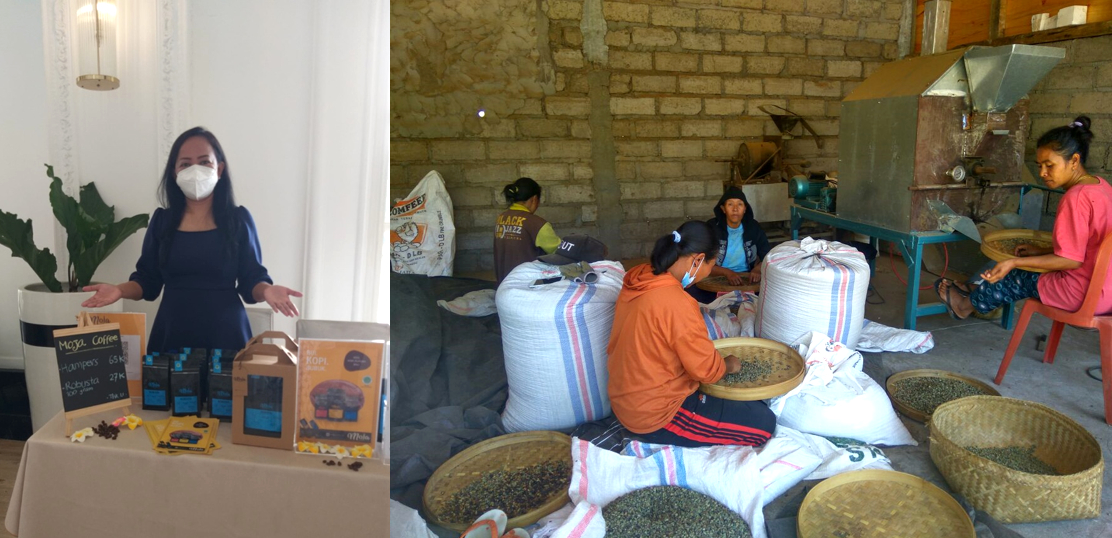
Elsye’s understanding of gender equality is similar to that of other participants, Putu Furina Dewi, owner of Moja Coffee. “Gender equality is a condition where men and women have the same opportunities, the same rights and responsibilities, and can live their lives free from discrimination.”
Born in Jakarta but originally from Pupuan, a coffee plantation area in Bali, she was longing to build her own coffee business which helps women coffee farmers. As a mother, she also wants to be productive economically, building her own business that is both profitable and contributes to improving the lives of female coffee entrepreneurs in Indonesia.
In the WeRise Toolkit training, she learned about gender discrimation and how to overcome it using WEPs in her business and community. She especially wanted to develop the policy in all aspects of her business – finding a suitable supply partner, employees and a funding organization, while sharing the same vision of empowering women to address gender inequality in society.
“As an entrepreneur, I have an opportunity to play an active role in realizing women’s economic empowerment throughout the supply chain by implementing company policies that are based on WEPs seven basic principles and on inviting other women entrepreneurs to come on board for the same purpose.”
Her commitment to implement WEPs in her business includes providing examples of best practices for investing in women and inspiring others from various communities to do the same. In this way, she hopes that in the future, the practices of implementing gender equality in running a business will be instilled in the society.
3. Retno Winarti, Owner of Hijrah Creative
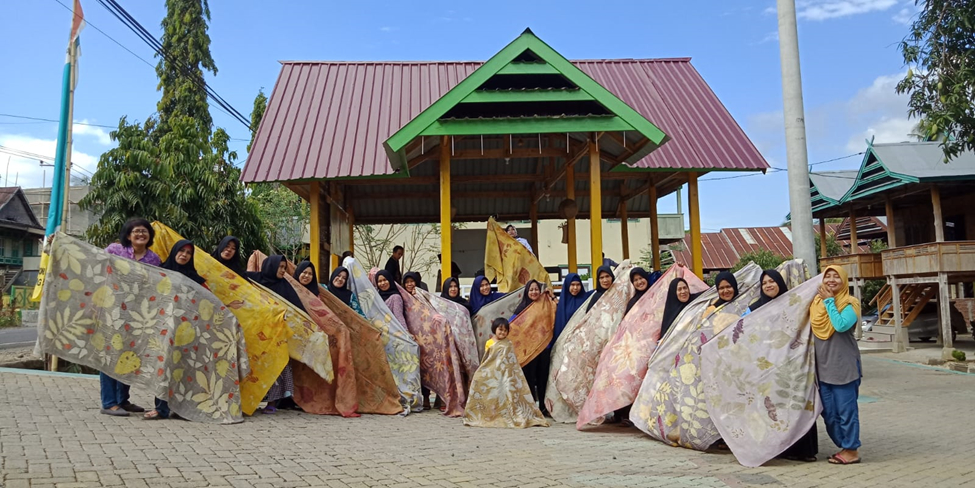
Making the transition from employee to business woman, Retno found herself more comfortable and empowered running her own Batik clothing business. She applied gender equality values to running her business with her husband, who resigned from his job and joined her thriving business.
For her, gender equality is about men and women walking side by side, making equal contributions, having the same privileges and rights. Retno and her husband finally established the legal corporation under both their names and both have different roles with equal rights and responsiblities in the business. While her husband handles research and development, raw materials and products, she focuses on marketing and client relationships. She notes, “My husband and I divide the tasks involved in running our business. We are equal and we coordinate all the elements that make our business successful”.
Gender equality has also been included in the products she developed, such as a unisex product for men and women. To emphasize the notion of equality, her men and women employees are treated in the same fashion.
In addition to running her business, she is often invited as a mentor in ecoprint or batik drawing training organized by the government or companies’ social responsibility programmes in other cities. In such trainings of women’s business groups, she continuously advocates for gender equality.
In the WeRise Training, she became aware of how to run a business, the importance of proper financial reporting and of having access to different types of institutional funding. The training taught her how to reach out to specific types of non-traditional funding institutions to scale up her business, and she passes the information to other businesses that she mentors.
In the near future, Retno also hopes to provide trainings for women in her area, mainly domestic workers, so they can produce goods and become business owners.
To learn more about the WeRise Toolkit click here.